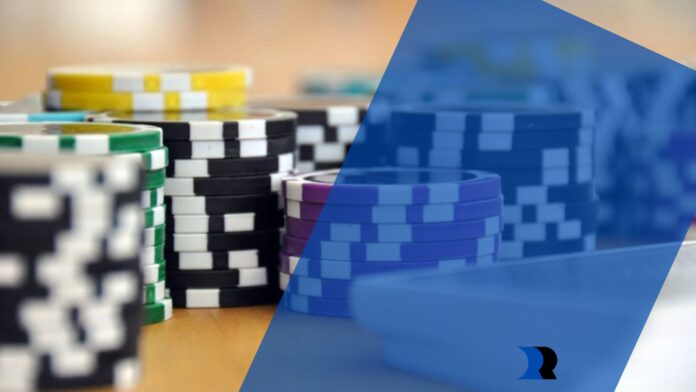In the fast-paced world of online poker, one skill separates casual players from serious grinders: the ability to multi-table efficiently. Multi-tabling – playing multiple poker tables simultaneously – can dramatically increase volume and potential earnings, but it also demands sharper focus, superior decision-making, and strong mental discipline. For newcomers to online poker, it may feel overwhelming, while for intermediate players, it’s often the next step in scaling their poker game.
This article will break down strategies for managing focus and improving decision-making while multi-tabling, helping you approach multiple tables like a professional.
Why Multi-Tabling Matters
The primary appeal of multi-tabling is simple: more hands per hour. Online poker is largely a game of volume. The more hands you play, the higher your opportunity to apply skill, recognize patterns, and exploit weaknesses in opponents.
For instance, a single cash game table might yield 60 hands per hour. By adding a second table, you could see roughly 120 hands per hour. With four tables, that jumps to nearly 240 hands per hour. Professional online poker players routinely manage six, eight, or even twelve tables at once during peak sessions. However, more tables mean more decisions in less time. Each hand requires attention to pot odds, stack sizes, opponent tendencies, and position, all while balancing the mental load across several games.
Start Small and Scale Gradually
A common mistake for players new to multi-tabling is trying to jump straight into three or more tables. While the temptation to increase volume is understandable, it often results in missed opportunities, errors, and tilt.
Start by mastering one table, then gradually add a second once you are comfortable with hand ranges, betting patterns, and basic strategy. Increase incrementally, adding a table only when you feel confident maintaining focus and decision quality. Most professional players recommend adding tables one at a time until you find your optimal balance between volume and accuracy. Remember, playing too many tables too soon can decrease overall win rate because errors multiply when focus is split.
Organise Your Interface for Maximum Efficiency
The layout of your tables can make or break your multi-tabling success. Proper organization allows you to process information quickly and reduce cognitive strain.
- Tile or cascade tables: Most poker clients allow you to tile or cascade multiple tables. Tiling can keep all tables visible at once, while cascading reduces clutter but may require more focus shifts.
- Highlight active hands: Many platforms highlight tables with action. Use these indicators to prioritize where your attention should go first.
- Standardize table sizes: Keep all tables uniform in size to reduce eye strain and improve reaction time.
Professional online poker players also make use of hotkeys and automatic actions like check/fold shortcuts for early-stage hands, which streamline repetitive decisions and free mental bandwidth for complex plays.
Prioritise Decision Quality
While volume matters, decision quality is critical. Multi-tabling is not about simply clicking buttons quickly; it’s about making consistently correct plays under time pressure.
- Pre-flop strategy: Stick to a solid, simplified pre-flop strategy. Knowing which hands to open, fold, or raise without overthinking allows you to save mental energy for post-flop decisions.
- Position awareness: Track your seat relative to the dealer across all tables. Position remains a key advantage even when multi-tabling.
- Post-flop focus: Focus more attention on post-flop decisions in pots with significant value. For smaller or automatic folds, rely on pre-planned strategies to reduce cognitive load.
By developing habits and rules for recurring situations, you can maintain decision quality while scaling up the number of tables.
Manage Mental Fatigue
Mental fatigue is one of the biggest challenges of multi-tabling. Split attention and constant calculation can quickly lead to errors if not managed properly.
- Take regular breaks: Even 5–10 minutes every hour can help reset focus.
- Set session limits: Avoid marathon sessions where concentration diminishes.
- Monitor tilt: Multi-tabling can amplify emotional reactions. Recognize signs of tilt and step away before mistakes multiply.

Many top online poker players keep hydration, healthy snacks, and a comfortable ergonomic setup to maintain energy and alertness. Mental endurance is just as important as technical skill.
Use Software and Tools Wisely
Tools like HUDs (Heads-Up Displays) and statistical trackers are common in online poker. They provide information about opponents’ tendencies and past behaviour, allowing faster, more informed decisions.
However, relying solely on software can be risky when multi-tabling. Use tools to enhance strategy, but ensure you understand why a decision is correct rather than simply following suggestions. Awareness and comprehension are essential for long-term success.
Practice and Reflection
Multi-tabling is a skill that develops over time. Professional players review hand histories, analyse mistakes, and refine table layouts and strategies. Start by reviewing small sessions to identify leaks in play. Are you making rushed mistakes on certain tables? Are certain positions or hand ranges consistently misplayed? Reflection is key.
Conclusion
Multi-tabling in online poker offers the potential to increase volume, experience, and earnings, but it is not without challenges. Success requires careful focus, structured decision-making, and disciplined mental management. Start small, prioritize decision quality, organize your interface efficiently, and manage fatigue to build skill over time.
Remember, professional multi-tabling is as much about strategy as it is about mental endurance. By approaching it with patience, structure, and awareness, you can play multiple tables like a pro, maximizing both enjoyment and results in online poker.


